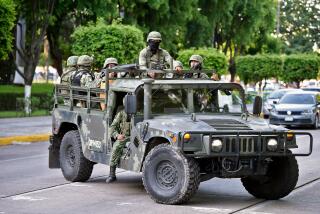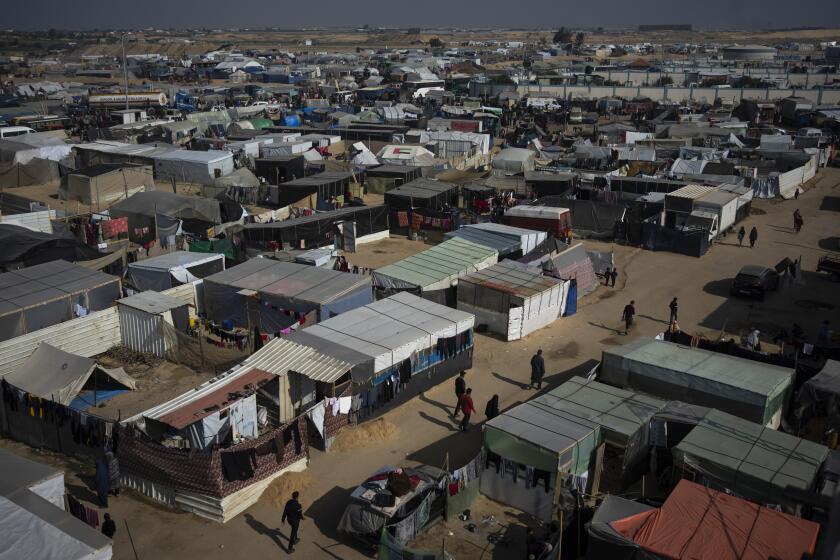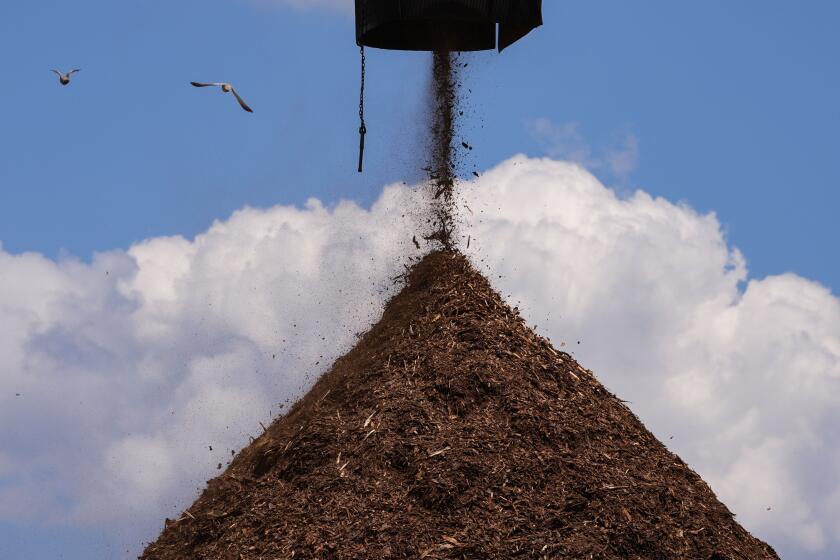ASIA : In Singapore, Candidate Runs From Election : The island nation is holding its first-ever presidential ballot. But there are no rallies--and no real competition.
In many countries, the last few days before a presidential election are filled with campaign rhetoric, political promises and a last gasp of hectic electioneering. But not here.
This island nation of 3 million people is having its first-ever presidential election Saturday. But there are no rallies, no debates and no issues. In fact, one of the two candidates really doesn’t want the job at all.
The front-runner is Ong Teng Cheong, who until recently was a deputy prime minister and secretary general of the National Trade Union Congress, the country’s umbrella labor union. Ong was also the chairman of the governing People’s Action Party, which makes his election a virtual certainty.
Ong’s opponent is Chua Kim Yeow, 67, a retired civil servant and banker, who said he was running as a “public duty” to offer voters a choice. Showing candor rare in the annals of presidential politics, Chua said he considers his opponent “a far superior candidate.”
Chua said he will not campaign, put up election posters or speak to the press, relying on two brief television appearances to get his message out. When a journalist pointed out that he would lose his privacy anyway if he were elected president, Chua replied, “That’s the problem.”
The non-campaign is the result of a 1991 change to Singapore’s constitution giving the country an elected presidency after three decades in which the president was appointed by Parliament.
Although the presidency was primarily ceremonial, the constitutional changes gave the post new powers, including a veto over government expenditures, appointment of senior civil servants and detentions under the security laws.
A Western diplomat said the changes were apparently designed to guard against a freak election result in which the People’s Action Party might lose its historic majority in Parliament. Now, if this happens, a president elected with the support of the People’s Action Party will be able to prevent the government from changing course.
The lackluster campaign reflected the general lack of interest in the job, which has been held by Wee Kim Wee, and will still remain largely ceremonial. Executive authority in Singapore effectively rests with the Cabinet, led by Prime Minister Goh Chok Tong.
The constitution also makes it difficult for opponents to even run for president, requiring candidates to submit applications to a government-appointed Presidential Elections Committee.
One requirement to run is that a candidate must have held a high government job, which narrows the field considerably, or served as chief of a large corporation.
Two members of Singapore’s tiny political opposition actually put their names up for consideration, includinB. Jeyaretnam, a perennial government critic. Both candidates were rejected by the election commission on the grounds they did not satisfy the constitution’s demands for “integrity, good character and reputation.”
“It would have been a real surprise if they had allowed me to run,” said Jeyaretnam, 68, secretary general of the opposition Workers’ Party. “I think they realized they would have a problem on their hands. They didn’t want to take a risk.”
Apparently concerned that the first election would be branded undemocratic if Ong ran unopposed, Finance Minister Richard Hu persuaded Chua to join the race. But Chua has so thinly disguised his horror at the prospect of winning that even Singapore’s normally complacent electorate has protested.
“I am greatly dismayed and disappointed by Chua Kim Yeow’s approach to his candidacy for president,” said a letter printed in the Straits Times, a newspaper that normally bends over backward to please the government. “If Mr. Chua truly believes he is offering Singaporeans a credible, nonpolitical alternative as president, then let him demonstrate his intent by putting up a credible campaign.”
Bilveer Singh, a lecturer at the National University of Singapore, said in a newspaper commentary that just because the government persuaded both candidates to run doesn’t mean the winner won’t be capable.
For his part, Ong has tried to assure voters that he would have “the moral courage to stand up and check the government.”
The government has also tried a carrot-and-stick approach to dealing with the problem of voter apathy. It declared election day a national holiday and made voting compulsory.
More to Read
Sign up for Essential California
The most important California stories and recommendations in your inbox every morning.
You may occasionally receive promotional content from the Los Angeles Times.






